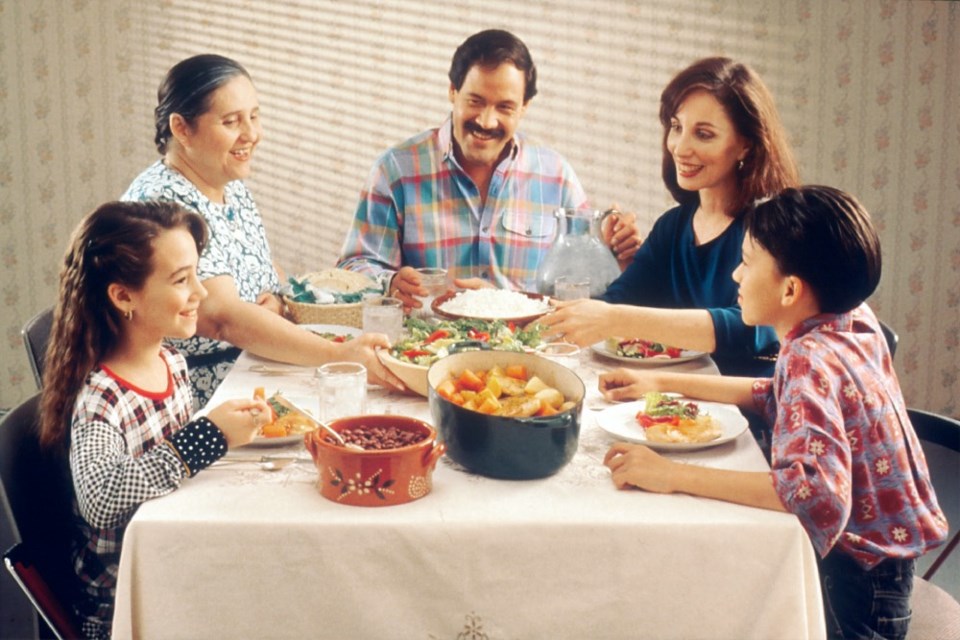Years ago, I began to notice that a piece of furniture was missing from many of the TV shows I watched. At first I thought it was a passing phenomena – but I frequently observed the same absence. People were not sitting at a table to eat their meals together; they were sitting on a chesterfield, maybe watching TV, often eating out of take-out containers. But that table was missing.
I mentioned this missing table to a class of adults who are interested in learning about Judaism, and discovered that many of them did not own a table. Tables were seen as superfluous to their lives; it was one more thing to buy, or there was no room in their small apartment, or coffee tables worked just fine. As someone who has always had a table (if not two), and who continues to share meals at a table, this phenomena of abandoning a piece of furniture I considered so central to our home life, intrigued and concerned me.
Many magazines and interior design articles have shunned the dining room and its table as superfluous to the fast paced norms of today. Even the kitchen table is often replaced by rows of stools at an island. But those tables bespoke something very precious. They spoke of a deep love of sharing food with family and with friends, they spoke of conversation and laughter through shared delight of shared food. Our table, be it a dining room or a kitchen table is the loci of connection, through food but also prayer, ritual, and song – all gifts to our souls.
The table – shulchan in Hebrew – is understood in our Jewish tradition to be a symbol of the altar of the Beit haMikdash, the Temple destroyed by Rome in 70 CE. In mystical Judaism, the Zohar considers the shulchan to not be merely furniture, but a necessary centrepiece, laden with symbolic foods essential to feed the whole world – blessing the world with necessary sustenance. Fast forward two thousand years, and I suggest the table continues to be profoundly significant; symbolically, metaphorically, and emotionally, binding our families together, as we eat together.
Just as the table has long been the centrepiece of our kitchens, the kitchen has long been considered the very heart of our homes. Ironically, our foodie culture of today focuses enormously on food – its preparation, flavours, varied origins. Endless food programmes focus on food, be it cooking competitions or ethnic explorations. Ironically many today eat at tables in restaurants more than at home. We stop for those minutes and we share a meal.
Our sustenance is more than material survival. Eating together provides us with time: to sit together, share our stories, relive our day, ask each other questions that may have perplexed us, all whilst our bodies are being nourished. Eating together is essential to our souls and our tables support that soul work.
One day, in class, one of my students spoke about how he and his husband finally bought a table. They brought their table home right before Hannukah – and they were amazed at how having a table changed the dynamic of their meals. They talked together, they entertained differently – the spokes of their wheel now had a centre, and their lives are now changed. Their table now graces their home.
A simple piece of furniture thus sustains us every day for another day. To paraphrase Gertrude Stein, a table is a table is a table. A table can become that place that contributes towards our spiritual well-being.
Rabbi Lynn Greenhough is rabbi with Victoria’s Jewish Reform community – Kolot Mayim Reform Temple.
You can read more articles on our interfaith blog, Spiritually Speaking, at /blogs/spiritually-speaking
* This article was published in the print edition of the Times 91原创 on Saturday, June 1st 2023



